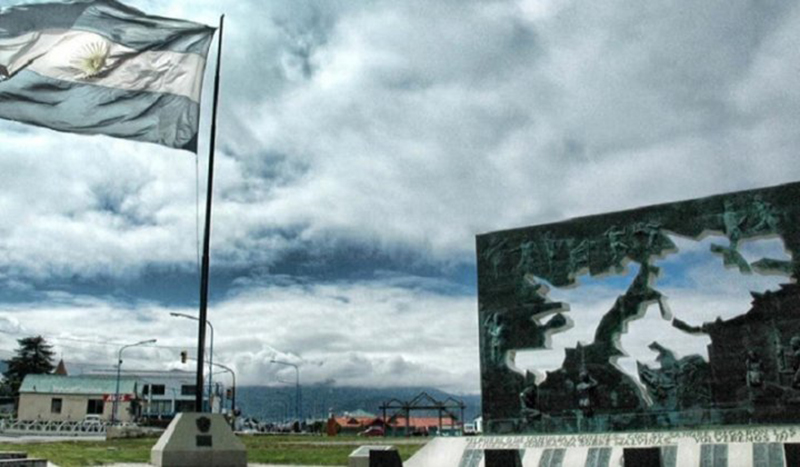
This April 2 is fulfilled a new anniversary of the beginning of the Malvinas War, a key war conflict in the history of the country, which lasted for 74 days and culminated on June 14, 1982. We travel some publications and literary narratives on the subject.
👉🏼 “Wars for Malvinas. 1982-2022“(Edhasa), by the historian Federico Lorenz. It adds to the classics of an author turned into “classic” on the subject. His work recovers his renovating contributions in the discussion of Malvinas and returns on new questions, in a field in which the meaning that Malvinas has today is not clearly the same as the one he had in 1982 nor when he wrote his first works. As this definitive edition advances in the prologue, the book is an attempt to deepen the discussions about the characteristics and consequences of war and enable other stories to the “frozen” in 1982, since talking about Malvinas implies talking about the political history of the country and public uses of the past and this bothers.
Lorenz maintains its concern to get away from a type of reductionism that explains the war and the mobilization that aroused, limited to the support of the military landing of April 2 and as manipulation of the Military Board in search of saving its obvious wear. It incorporates different dimensions of the conflict, militant experiences and collective actions, the cultural impacts that it generated and put in motion before, during and after the conflict.
Especially addresses the situation of the former soldiers, from their return confronted to transit the war experience. Follower of the work of the English historian John Keegan, Lorenz rescues throughout the book raw testimonies, dialogues, exchanges that echo the living scenarios of the fighting, space in which the vital experience of the war and part of the invisible links that last once concluded is built. Many decided to confront their experience with social visions about war and the public uses of Malvinas from the withdrawal of the military dictatorship to the Kirchnerist efforts. The book returns about one of its central concerns, conceptually rethinking the dominant look or the Buenos Aires perception of the experience of war, which greatly limits its reconstruction.
Guillermo Iturbide Share your reading of “The dead of our wars” of the same author, within the fictional genre, who recounts how a Captain of the British Army of the First World War with a photographer seeks to identify the bodies of their fallen companions. Among them underlies a reflection on war and memory. File 👉 “The dead of our wars”

👉🏼 “The other war. A history of the Argentine cemetery in the Falkland Islands” (Anagrama), from Leila Guerriero. “In 1982, after the war between Argentina and Great Britain for the Falkland Islands, the English army ordered the Cardozo officer to identify the Argentine soldiers who died in that territory and design a cemetery to house them. The results of their work arrived at the Argentine government, who did not make them public or announced them to the relatives of the fallen, so that they remained unidentified.
Thus begins the work of the journalist Leila Guerriero, who in less than a hundred small pages builds the history of the cemetery in the Falkland Islands and the process that led to identify the Argentine soldiers who died in the archipelago. There were 649 dead, more than half a thousand subsequent suicides and almost ten thousand soldiers returned as prisoners to the continent. They are buried in islands 237, in total 122 bodies buried in 121 tombs of the Darwin cemetery. Guerriero puts the focus on a subject less worked by the studies on war and also, as he usually does in his journalistic chronicles, combines the detailed and articulated story of the events, the rigor of the sources and clairvoyance in what was already told, in his writing he is originally reflected.

👉🏼 “The Malvinas issue in Argentina of the twentieth century. A social and cultural history” (GEHGue), editor of María Inés Tato y Luis Esteban Dalla Fontana. The book collects a series of articles from different authors who address aspects of social mobilization that generated the Malvinas War through various case studies and reflects on the postwar period. Treaties from a conceptual framework in which the idea of ”mobilization” exceeds the strictly economic and military to cover, from what is raised as “culture of war”, the set of representations of the conflict that appropriate and circulate in society. Although a less problematic approach predominates in strictly political terms, the problems it indicates contribute to positioning the debate about the war with novel contributions.
A series of works address the journalistic treatment of war, intervention and state propaganda and the different media particularly of the written press, nothing less is remembered that for the time it had almost become the main source of information. Among this series, the magazine treatment is included Fair and the supplement Croniquita of the 1982 war thinking of a children’s auditorium, with a cultural message both from the point of view of the knowledge of island territory and its inhabitants and the representation of the British. Sport is another field of analysis, investigating how it operated as a vehicle for representations and social meanings that were made of the war situation disseminated by the written press. The book suggests and proposes a field of studies to deepen in the framework of the social and cultural history of war.

👉🏼 When 40 years of war was published “If you want to come to come. Malvinas: genealogies, war, left” (Autonomy). A collection of different essays that are drawing a tour of many of the fundamental debates that cross the Malvinas issue to this day. It is a collective work written by Federico Mare, Ariel Petrucccelli, Andrea Belén Rodríguez, Ariel Pennisi and presented by Santiago Roggerone. A contribution to the debate that, beyond the agreements and differences that can be taken with the authors, notes Matias Malllyinvites you to reflect on nodal aspects of a founding fact in national history. File 👉🏼 Think about war. About the book if they want to come to come.

Finally Cecilia Rodríguez review “The other islands. Anthology” (Loquelele editions) A series of stories that explore the wounds still open for the defeat in Malvinas, through the feathers of Juan Forn, Liliana Bodoc, Inés Garland, Pablo de Santis, Eduardo Sacheri, Pablo Ramos, Marcelo Birmajer, Patricia Suárez and Esteban Valentino. File 👉🏼 “The other islands: narrate youth in times of war.”

MALVINAS HISTORY / ISLANDS / REVIEWS / ARGENTINE HISTORY / MALVINAS WAR / Uruguay / Las Malvinas / What can be read?
Source: www.laizquierdadiario.com

